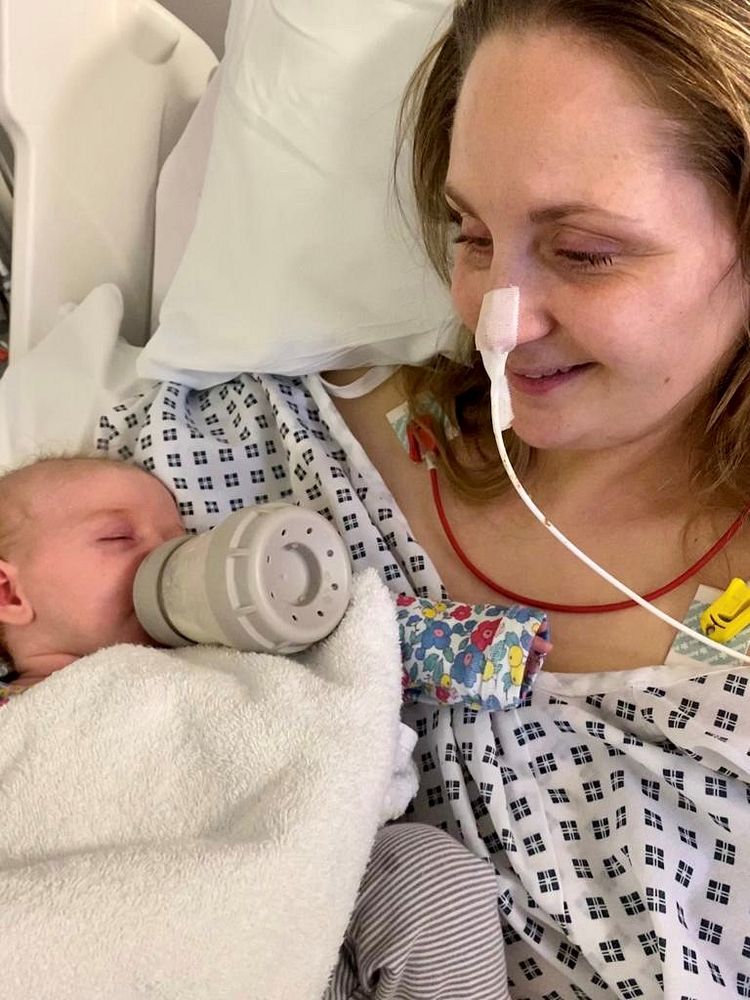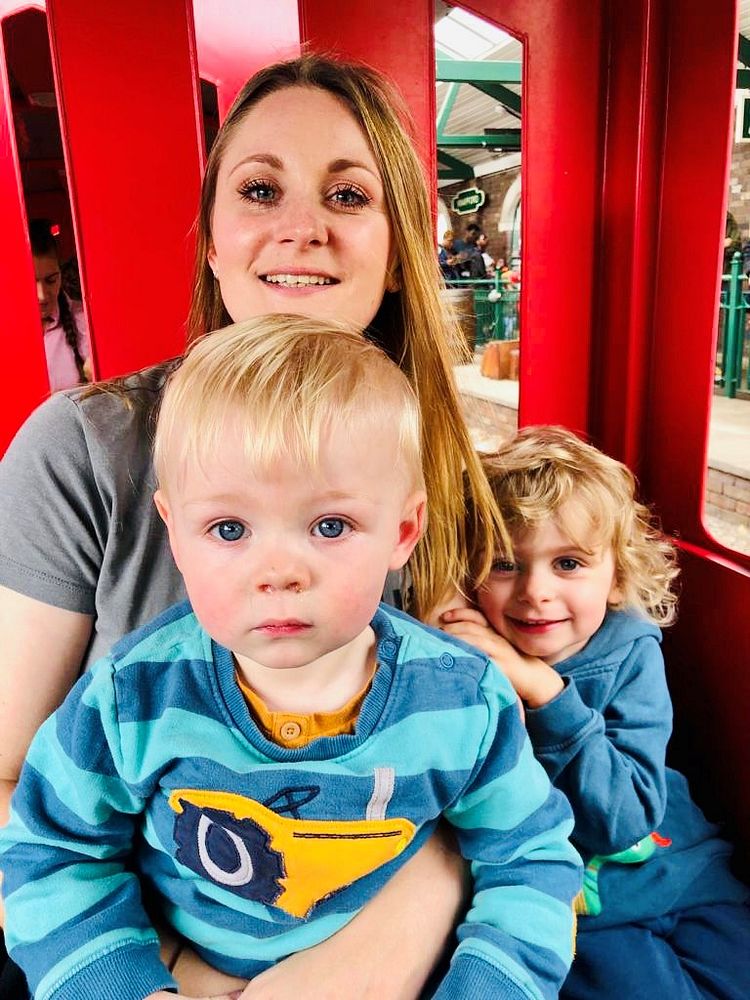This just proves that stroke medical 'professionals' are pretty much worthless to survivors.
A fifth of stroke survivors say talking to others affected by stroke was the single most important part of their recovery
Stroke Association shares new research to mark World Stroke Day and highlight how to find strength through support
One in five stroke survivors (18%) say that talking to other stroke survivors was the single most important part of their recovery, but in fact only a quarter (27%) did so, according to new research1 released today by the Stroke Association.
To mark World Stroke Day (Tuesday 29 October), the charity, which connects survivors with each other to improve recovery from stroke, surveyed over 1,000 UK stroke survivors. The research findings highlighted just how important connecting with other stroke survivors was to their recovery.
Of those who spoke to other stroke survivors for support (27%), a staggering 94% said it helped them with their recovery. In fact, almost two thirds of them (60%) said it helped them to realise they weren’t alone, while over half (58%) said it gave them hope. Over half (54%) said talking to other survivors gave them emotional strength during their recovery.
The findings also uncovered that, of those who hadn’t spoken to other stroke survivors after their stroke, over three quarters (78%) wished they had done so.
In light of the research findings, the Stroke Association has launched Stroke Encounters – a series of three short films which will debut on the charity’s social media channels - to raise awareness this World Stroke Day. These films tell the stories of three people who’ve recently had a stroke, meeting with survivors further along in their recovery journey to talk to them about their experiences and offer help and advice for their recovery.
Over 88,000 people survive a stroke every year in the UK, but surviving a
stroke is just the start of a long and traumatic battle to finding their way back to life. A stroke can leave survivors unable to move, see, speak, or even swallow. Mums, dads, grandparents, young people, even children can be stroke survivors, and the impact of stroke on them and their loved ones can be catastrophic.
The research demonstrated just how shattering the impact of stroke can be on the stroke survivor:
- Four in ten stroke survivors (42%) surveyed said they are worried about their future
- Almost half of stroke survivors (46%) felt scared after their stroke
- Over a third of stroke survivors (36%) felt depressed
- Over a fifth of stroke survivors (21%) felt alone
- One in ten stroke survivors (10%) felt suicidal
- Research conducted by 4Media/Atomik Research on behalf of the Stroke Association, August 2024
Recovery after a stroke can take years and it can impact every aspect of the lives of the survivor and their family. Feelings of shock, anger, grief and guilt are common when faced with such a devastating change. Of the stroke survivors surveyed, over a third (36%) said the most crucial thing they needed during their stroke recovery was emotional support, while a third (33%) said the most important thing was to understand what was coming next in their recovery journey.
When asked what advice they would give to a newly diagnosed stroke survivor, almost half (45%) of those surveyed advised to try to remain positive, over a third (35%) said that survivors will feel stronger if they get support, whilst the same number (35%) recommended they talk to other stroke survivors.
Juliet Bouverie OBE, CEO of the Stroke Association, said: “Everyone’s experience of stroke is unique, but for many it can feel like they’ve lost the life they had. Our new research highlights that connecting with others affected by stroke is often the most important thing in helping to recover after stroke. Sharing your experiences can help you understand stroke and learn new ways to cope.
“Every day, another 240 people wake up to the devastating reality of stroke. When that happens, we’re here with support for every stroke survivor and their loved ones, for however long it takes. From the moment they enter the new and frightening post-stroke world, we’re here to help survivors find their strength and their way back to life.
“Whether it’s to connect with other survivors at one of our stroke groups, or to speak to someone online or over the phone, we’d encourage anyone affected by stroke to find out more about how we can provide support and put you in touch with others who have been there too.”
Charlotte Coulbert , 37, from Stramshall, has felt the positive impact of connecting with other stroke survivors, following her stroke just weeks after giving birth by caesarean section. Due to her stroke, she didn’t see her new daughter for the first few weeks after she was born.
The mother of three had a planned caesarean section with her third child in June 2022. Just a few weeks later, Charlotte suddenly collapsed at home in front of her three children and her husband, who quickly rang for an ambulance.
On arrival at hospital, Charlotte went into cardiac arrest due to blood clots in her lungs while she also had a stroke. It was then she was put into an induced coma in a desperate attempt to stop the internal bleeding she was also suffering from.
Charlotte explains, “I can close my eyes and hear the voices shouting ‘breathe, Charlotte. Breathe!’ – it’s a terrifying memory. From that moment, I lost consciousness, and I don’t remember anything until ten days later when I woke up from the coma. When I woke up, I was so confused, terrified and felt alone.
“I also remember the first time I saw my daughter after my stroke. She was five weeks old, and I had missed almost two weeks of her little life – which felt like an eternity at that age. I was lying in my bed on the critical care unit – tubes in my nose, beeping machines surrounding me – and there was my little, tiny baby being handed to me. It was a miracle I was alive after what I’d been through, and it was a miracle I was holding my baby again.”

Charlotte’s
stroke left her with right sided paralysis and communication difficulty
called aphasia and she had to spend three months in hospital.
Charlotte
said, “Recovery is gruelling. The road is long. When I woke up in
hospital my right side was severely affected, I had difficulty
swallowing and was fed using a tube, and my speech was really
challenging. I couldn’t recognise who I was anymore.
Charlotte was a Sales Representative before her stroke, but is yet to return to work. Charlotte knows what it felt like to feel alone after a stroke, despite her incredibly supportive family, which led her to try and connect with others.
Charlotte said: “Coming home after a stroke
can be a lonely time for many people, and whilst I was so lucky to have a
great support network around me, I wished I could speak to someone who
really understood what I was going through.
“In January 2023 I
opened an Instagram account to share tips and advice on stroke recovery,
and to talk to others. It has been a huge source of comfort and
reassurance, and also a happy place to see my progress. I believe that
speaking to others in a similar situation is really helpful.”
Charlotte now wants to continue connecting with others in a similar situation and educate the public on stroke too.
Charlotte
added “I would like to help people understand that stroke is for life
but that doesn’t mean it’s the end of your life. Every day is
different, you will have good days and bad ones. There will be ups and
downs. But reaching out to others can help.”

The Stroke Association is the only charity in the UK providing lifelong support for all stroke survivors and their families. The charity provides tailored support to tens of thousands of stroke survivors each year, funds vital scientific research, and campaigns to secure the best care and support for everyone affected by stroke.
The charity provides a number of ways to connect stroke survivors with people with lived experience of stroke. These include Stroke Association support groups where survivors can share experiences and make new friendships; a weekly phone conversation with a trained volunteer where survivors can talk to somebody who has had a stroke or cared for someone who has; and the charity’s Online Community which connects thousands of people who understand stroke first-hand, providing support throughout recovery.
The Stroke Association supports stroke survivors and their families by phone, at home, and in the community. Find out more at www.stroke.org.uk
Topics
Over 88,000 people survive a stroke every year in the UK, but surviving a stroke is just the start of a long and traumatic battle to finding their way back to life.
The Stroke Association is the only charity in the UK providing life-long support for all stroke survivors and their families. We provide tailored support to tens of thousands of stroke survivors each year, fund vital scientific research, and campaign to bring the best care and support for everyone affected by stroke.
Anyone affected by stroke can visit stroke.org.uk or call our dedicated Stroke Support Helpline on 0303 3033 10
No comments:
Post a Comment